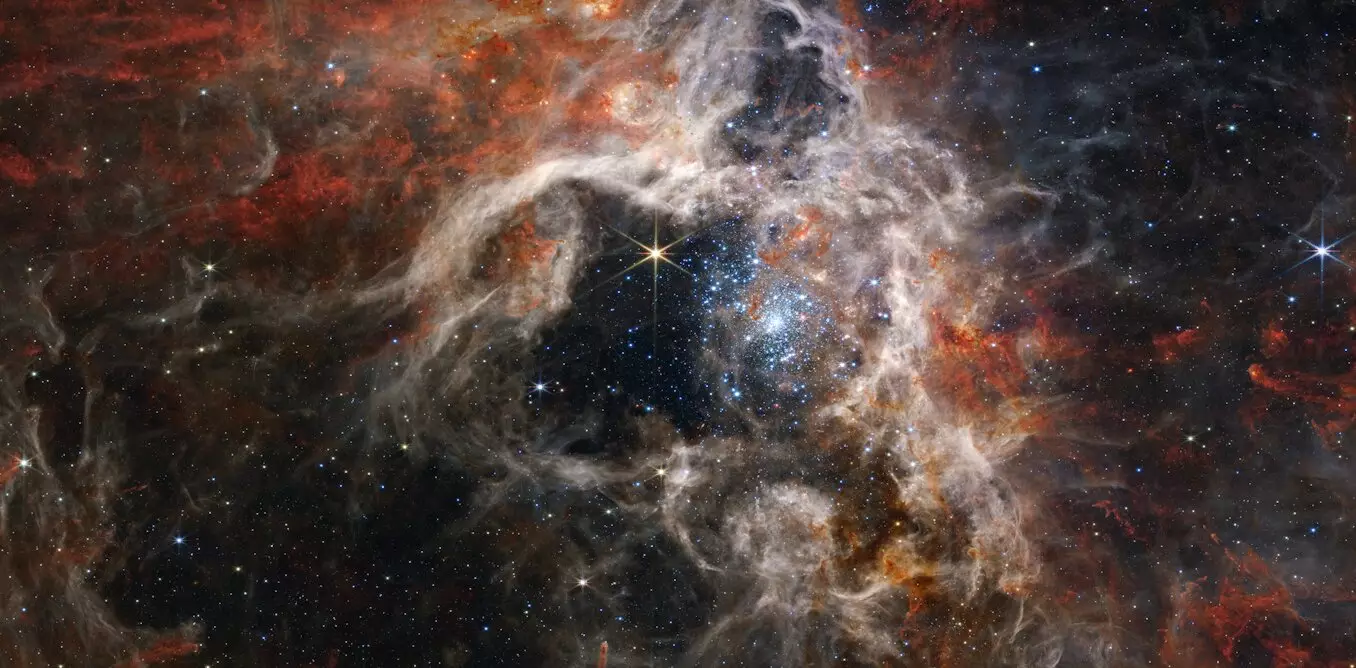Our universe, which has been in existence for a remarkable 13.7 billion years, may not be as stable as it appears. Recent experiments have pointed to a potential risk factor that could jeopardize the very fabric of our reality. This risk factor revolves around the instability of a fundamental particle known as the Higgs boson.
In a recent study published in Physical Letters B, researchers shed light on how certain models of the early universe, particularly those involving light primordial black holes, could have catastrophic consequences due to the interaction with the Higgs boson. The Higgs boson plays a crucial role in determining the mass and interactions of all known particles. Essentially, it is responsible for shaping the physical properties of the particles that make up our world.
The Higgs boson is associated with the Higgs field, a theoretical concept that permeates throughout the universe. This field is akin to a calm water bath, providing a consistent framework for particle interactions and mass. However, the Higgs field may not be in its lowest energy state, leaving room for potential phase transitions. These transitions could lead to the creation of low-energy bubbles with altered physical laws within them, disrupting the fundamental properties of matter.
One intriguing proposal put forth in the study involves the impact of primordial black holes on the stability of the Higgs field. Unlike conventional black holes formed from stellar collapse, primordial black holes emerged in the early universe from densely concentrated regions of spacetime. The presence of these lightweight black holes, predicted by various cosmological models, could significantly influence the behavior of the Higgs field.
Stephen Hawking’s groundbreaking work on black hole evaporation highlighted the idea that these celestial bodies radiate energy and heat over time. In the case of primordial black holes, their rapid evaporation due to their relatively small mass could contribute to fluctuations in the surrounding energy field. This energy exchange could potentially trigger phase transitions in the Higgs field, leading to disruptions in particle masses and interactions.
While the theoretical interplay between primordial black holes and the Higgs field presents intriguing possibilities, the study’s findings suggest that such scenarios are highly unlikely in reality. The absence of observable effects on particle physics indicates that the universe has not succumbed to the destabilizing influence of these objects. However, the quest to unravel the mysteries of the cosmos continues, with ongoing research shedding light on the delicate balance that sustains our existence.
The universe’s longevity and stability are intertwined with the intricate interactions between fundamental particles and cosmological phenomena. The potential risks posed by the instability of the Higgs boson underscore the complex nature of our reality. As we delve deeper into the mysteries of the cosmos, we inch closer to unlocking the secrets that govern our existence on both the smallest and grandest scales.


Leave a Reply